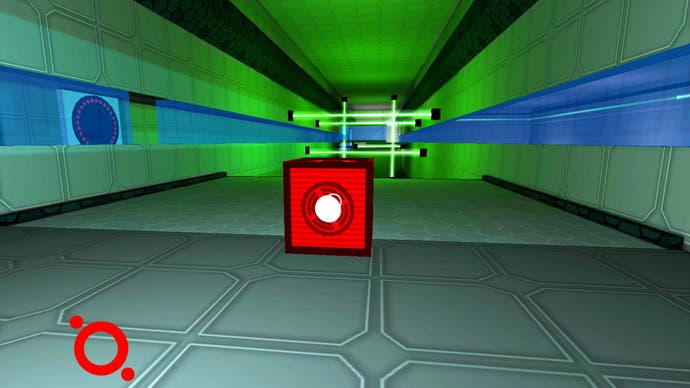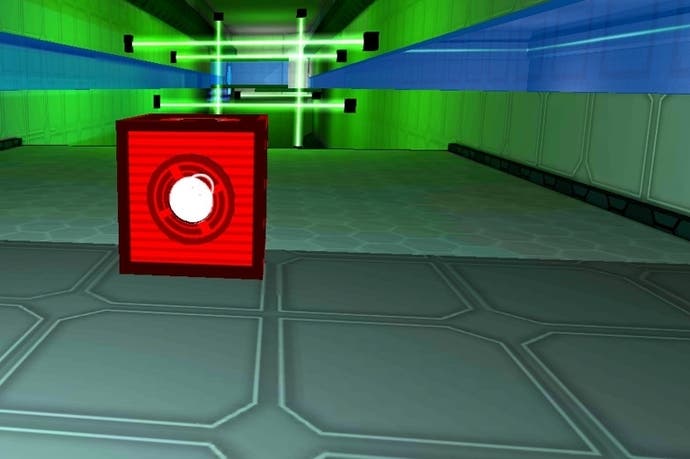Polarity - Ouya review
These colours don't run.
From the crisp clinical aesthetic to the P in its name, this physics-based indie puzzler isn't shy about its inspiration. You may not be warping through portals, but the shadow of Valve's critical smash still looms large over this short but sweet tribute act, an Ouya exclusive.
As the title suggests, the mechanism at play here is one of switching between two opposite states - red and blue - in order to navigate pristine obstacle courses and reach the elevator at the end. When in a blue state, you can pass through blue barriers. When in red, the opposite applies. There are even cute little cubes of the same colours, used to activate platforms, doors and ramps, provided you can manoeuvre them past the barriers without letting them disintegrate.
You're not just racing to the exit, however. Each stage contains three data cores to find, and while you can complete a level without finding them all, your cumulative core total is what unlocks the later stages, with the very final level off limits until you've found all 36.
With just 12 stages, most of which can be cleared in five minutes or less, you're not looking at a massive challenge for your $4.99, but that's not to say it's without its pleasures. Despite the vast difference in resources - Polarity being designed by one-man UK indie studio Bluebutton Games - there are still moments of ingenuity that come incredibly close to the best puzzles that GLaDOS threw at you.

With such a brief span of playing time, those moments aren't really sustained though. The levels tend to favour basic platforming over physics puzzles, with some levels barely using the polarity concept at all. Throughout, there's a sense that there are untapped depths still to explore in the basic idea of polarity. Any physics puzzler that uses aspects of red and blue in its core mechanic without playing around with the concept of redshift is surely missing a trick.
It seems most likely that this is a problem of resources rather than ambition. Sometimes Polarity asks you to pull off feats that are just beyond the limits of the game engine (or at least, Ouya's ability to cope with the game engine). Low ledges tend to snag you, and on the rare occasions that the game requires you to move especially fast, the slight slipperiness of movement can become frustrating.
In the end, Polarity's obvious debt to Portal can't help but count against it. The core idea is strong enough to survive without being so obviously beholden to someone else's game and, while comparisons are inevitable given that the first-person puzzle game genre is hardly overstocked, it would be nice if Polarity had the courage to celebrate what makes it unique rather than constantly reminding the player of a more famous experience that it can't hope to exceed.
Like many of Ouya's more high-profile games, Polarity has received a lot of major beneficial title updates in the past few months, and there's talk of more levels and expansions being added if the game is a success. Certainly there's potential enough here to suggest that could only be a good idea. A bit more meat on the bones, a bit less deference to Valve, and this would be precisely the sort of exclusive the Ouya needs.

